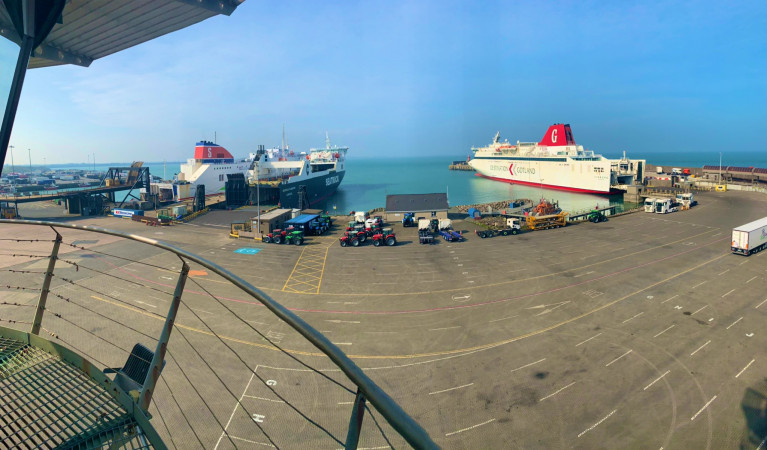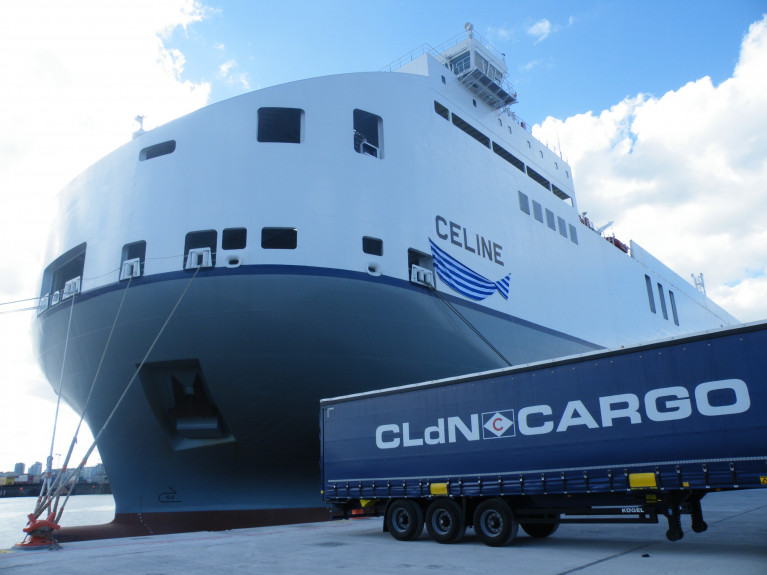Displaying items by tag: IrelandEU
Traffic Through Ports Slows by 1% in Third Quarter - Says Irish Maritime Development Office
Traffic through Irish ports have declined marginally in the third quarter of this year, according to the Irish Maritime Development Office (IMDO).
The lastest figures from the IMDO, a government office which provides support to national and international maritime businesses, recorded that Roll-on and roll-off (Ro-Ro) traffic declined by 1% compared to the same period in 2021.
On routes between Ireland and mainland Europe, traffic on these direct routes was down 2% while traffic to ports in the UK was unchanged.
The shift to direct routes to the EU, which emerged following the end of the Brexit transition period that ended on 31 December 2020 "is so far holding firm" said the IMDO.
RTE News reports more on the trade figures including ferry passenger numbers.
New Trade Routes Up to 20 Connecting Continent Used In Wake of Brexit Says Chambers Ireland
Companies in Ireland are using up to 20 new trade routes to get goods to continental Europe in the wake of Brexit, according to the head of business lobby group Chambers Ireland.
Ian Talbot said businesses here were increasingly avoiding the UK landbridge by using direct ferries to Europe as an alternative to avoid customs issues.
Using the traditional UK landbridge – Dublin-Holyhead-Dover-Calais – was now taking up to 15 hours longer, he told the European Parliament Committee on International Trade (INTA) on Tuesday.
“Another interesting dynamic is how trade routes have shifted with an unprecedented at least 20 different route interventions particularly for RORO (Roll-On Roll-Off) direct into Europe that used to use the landbridge,” he said.
The new routes include: Dublin-Rotterdam-Zeebrugge; Rosslare-Dunkirk;Rosslare-Bilbao; and Cork-Antwerp-Zeebrugge.
More reports The Irish Times on firms avoiding the UK landbridge.
Ro-Ro ‘Brexit Buster’ Can ‘Dramatically’ Increase Direct Ferries to Mainland Europe
CLdN Ro Ro S.A. which is the largest shipping line connecting Ireland and continental Europe says it can “dramatically” increase its services if there is a hard Brexit.
The Luxembourg-based shipping line, The Irish Times reports, operates direct ferries seven days a week between Irish ports and mainland Europe, connecting Dublin with Zeebrugge in Belgium and Rotterdam in the Netherlands, and Cork with Zeebrugge with journey times of about 38 hours.
Sjors Bosvelt, CLdN’s head of sales based in Rotterdam, said the shipping line has plans in place to provide further services should a disorderly Brexit at the end of the standstill period on December 31st result in delays with new checks at British ports that congest the landbridge.
“We have contingencies to allow us to dramatically increase capacity in the event that there is a hard Brexit,” he said.
“With our own fleet of vehicles, we have, to a large extent, flexibility in allocating capacity to where demand is, answering to the volatility in each market.”
More here including the stalled talks of the UK-EU negotiations.
In addition to Afloat's coverage of Celine's naming ceremony as alluded in the photo caption.
Euroroute: New Shipping Route Will Cut-Out Britain
#Ports&Shipping - A post-Brexit new shipping route will see Ireland connected to Europe via the Netherlands and Belgium under EU contingency plans.
The European Commission reports The Independent has adopted a proposal which will see Dublin and Cork ports connected with Zeebrugge and Antwerp in Belgium and Rotterdam in the Netherlands - but does not include French ports.
The realignment of the EU's strategic transport corridor, the North Sea-Mediterranean route, is part of Europe's 'Brexit preparedness' measures.
The route has been redrawn as part of efforts to allow Irish trade a means of circumventing UK customs checks post-Brexit and to find alternatives to the land-bridge over Britain.
To read more including what Fine Gael MEP Brian Hayes has to say on the contungency plans, click here.

























































